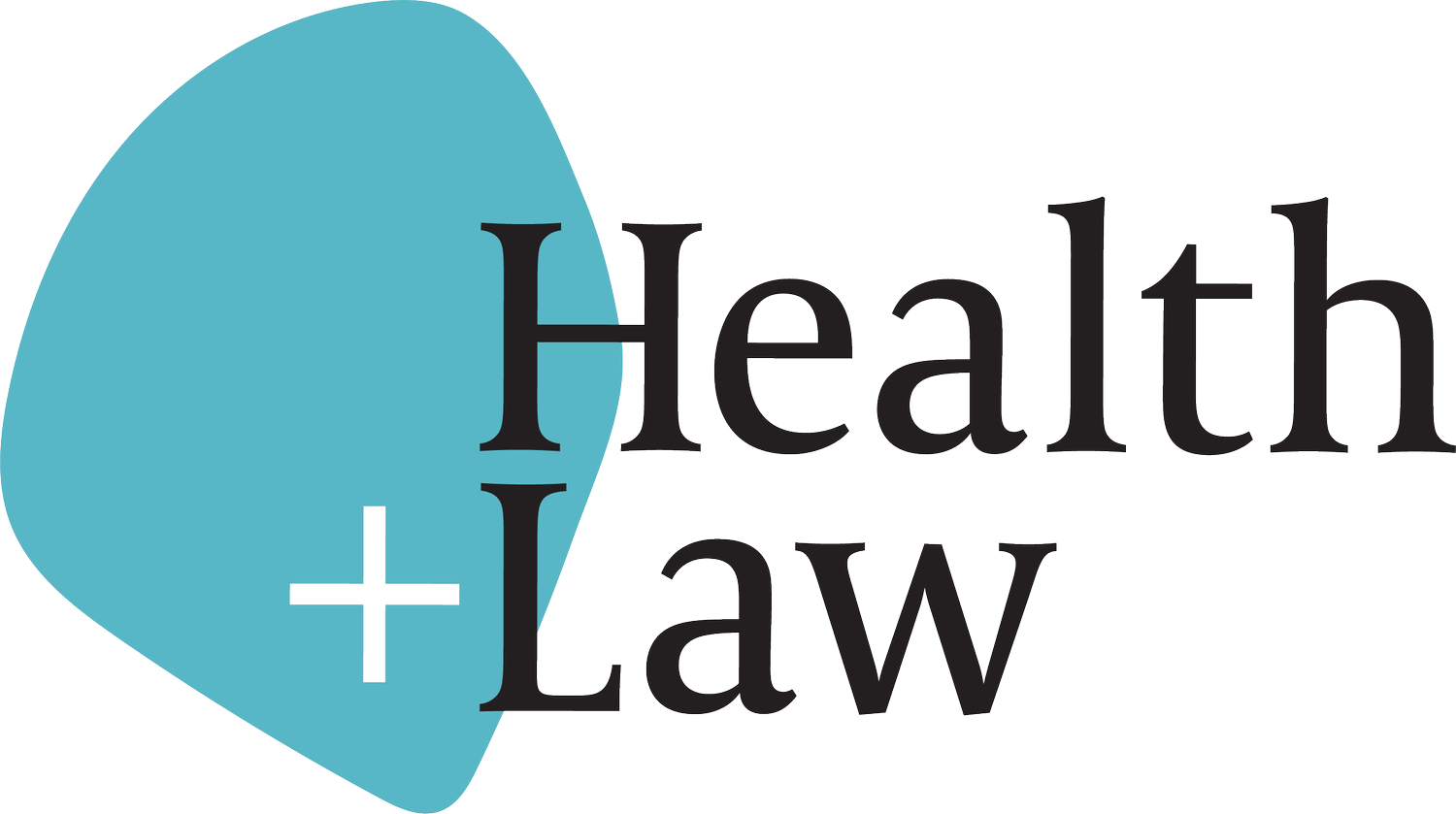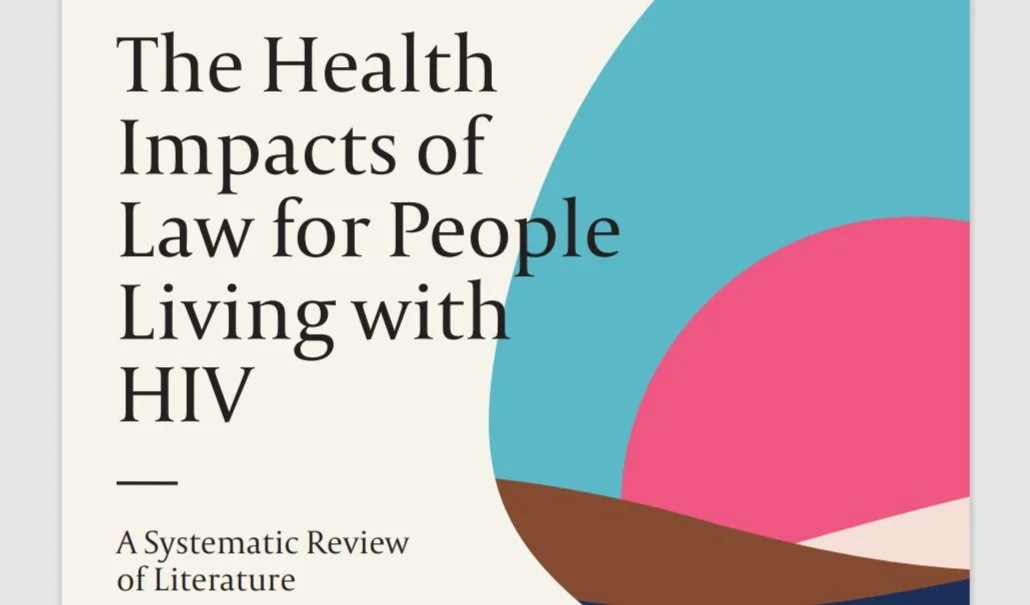New Publication: A Global Review of the Health-Impacts of Law on People Living with HIV
The law has a powerful relationship to health. In the case of HIV, the way law is designed and enforced can have a huge impact on preventing HIV transmissions in populations, and ensuring people living with HIV can access the care and treatment they need.
For example, advocates have argued for many decades that criminalisation is harmful. This includes the criminalisation of transgender people, sex between men, drug use and sex work. Criminalisation risks driving behaviours underground while reducing people’s ability to safely access HIV-related services, including testing and treatment. Globally, evidence shows that countries that don’t impose criminal sanctions in these areas have better HIV-related health outcomes, including higher rates of HIV status knowledge and greater achievement of viral suppression.
In the arena of travel and migration, people living with HIV continue to face legal restrictions that negatively affect their lives. As the recent ACT NOW report and recommendations outline, restrictive migration laws operate to curtail the movement and migration of people living with HIV, expose individuals to serious health harms, and undermines public health goals to end HIV. Emerging evidence from Health+Law’s national legal needs study supports the ACT NOW findings, showing how Australian migration law actively deters migrants and visitors from seeking HIV testing, treatment and care, potentially leading to delayed diagnoses and viral suppression in some cases.
Beyond these examples of movement and migration, there are also many less well understood ways in which the law operates unfairly in the lives of people living with HIV. These include more ‘everyday’ impacts on work, education, family life and more. The latest publication from the Health+Law team presents a broad overview of these issues and the laws that are associated with them. Titled ‘The Health Impacts of Law for People Living with HIV: A Systematic Review of Literature’, it provides a review of all the key legal areas affecting people living with HIV by systematically reviewing global literature in English on the topic.
To do this, we devised a search strategy designed to find evidence about ‘justiciable’ (legal) issues facing people living with HIV, and the health-related impacts of these issues. We searched for both peer-reviewed and grey literature in multiple databases, seeking information published since 2016 to focus on current legal issues and to align with the advent of the ‘U=U’ era. When considering ‘health impacts’, we looked at the influence that law had on people’s ability to move through the HIV Cascade of Care, as well as their quality of life, wellbeing and ability to move through the world without experiencing stigma and discrimination.
From over 5,000 results, we identified 89 relevant records. You can read in more detail about how we processed and analysed all of this data in our report.
It may be no surprise to read that the review confirmed that people living with HIV experience a wide range of legal issues across almost all the traditional areas of law. However, our review revealed some other specific and important findings.
First, while the criminal law has been one of the biggest issues for people concerned with HIV and the law, there is now a growing body of research on legal issues across other areas of both private and public law. This includes issues in:
Administrative law around access to government services and social supports
Migration law around challenges regarding the movement of PLHIV across borders
Education and training law, including matters such as disclosure and HIV status
Privacy law
Housing law
Industrial relations law, and more.
Second, the legal issues faced by people living with HIV often intersect with each other to create a cumulative effect. For example, legal issues around stable housing may cause future issues around accessing family supports. These issues may then go on to cause further issues with meeting legal deadlines – say, in relation to paying a debt, for example. When bundled together, the effects of individual legal issues can be exacerbated. In other words, the legal issues people living with HIV face are entangled, and they may increase the health-related impacts of one another.
Third, the health-related impacts of these legal issues are extremely broad. Several recent studies from the United States, for example, identify specific barriers to HIV care and other health services. But ‘health-related impacts’ go beyond HIV-specific matters, including impacts like greater exposure to intimate partner and family violence, lower quality end-of-life care and advanced planning, poor access to mental health supports, and much more.
Finally, while many laws seemingly have very little to do with HIV – or even with health, per se – they can affect people living with HIV more severely. As we write in our report:
The nexus between HIV and the law extends well beyond HIV-specific legal provisions and even beyond provisions that directly concern health. Instead, there are a range of facially neutral laws that generate differential and inequitable effects for those living with HIV.
This is why it’s so important to explore the legal experiences of individuals from ‘the bottom up’, as Health+Law are doing in our National Legal Needs Survey.
The results of this new review provide a comprehensive, up-to-date overview of legal issues and barriers to HIV care in OECD countries, and much more besides. It will be of interest to people working in HIV policy and community organisations, legal professionals and other types of service workers. So too will it be of interest to people concerned with other blood-borne viruses and infectious diseases, like hepatitis B and hepatitis C, where the law also has a significant impact on people’s lives and health, and needs to be better understood.
Download and read the complete report here
Citation: David J. Carter, Negar Jamshedi, Anthea Vogl, Rhys Evans, James Brown, Hamish Robertson & Dion Kagan (2024), ‘The Health Impacts of Law for People Living with HIV: A Systematic Review of Literature’ (2024), Health+Law, https://papers.ssrn.com/sol3/papers.cfm?abstract_id=5016325


